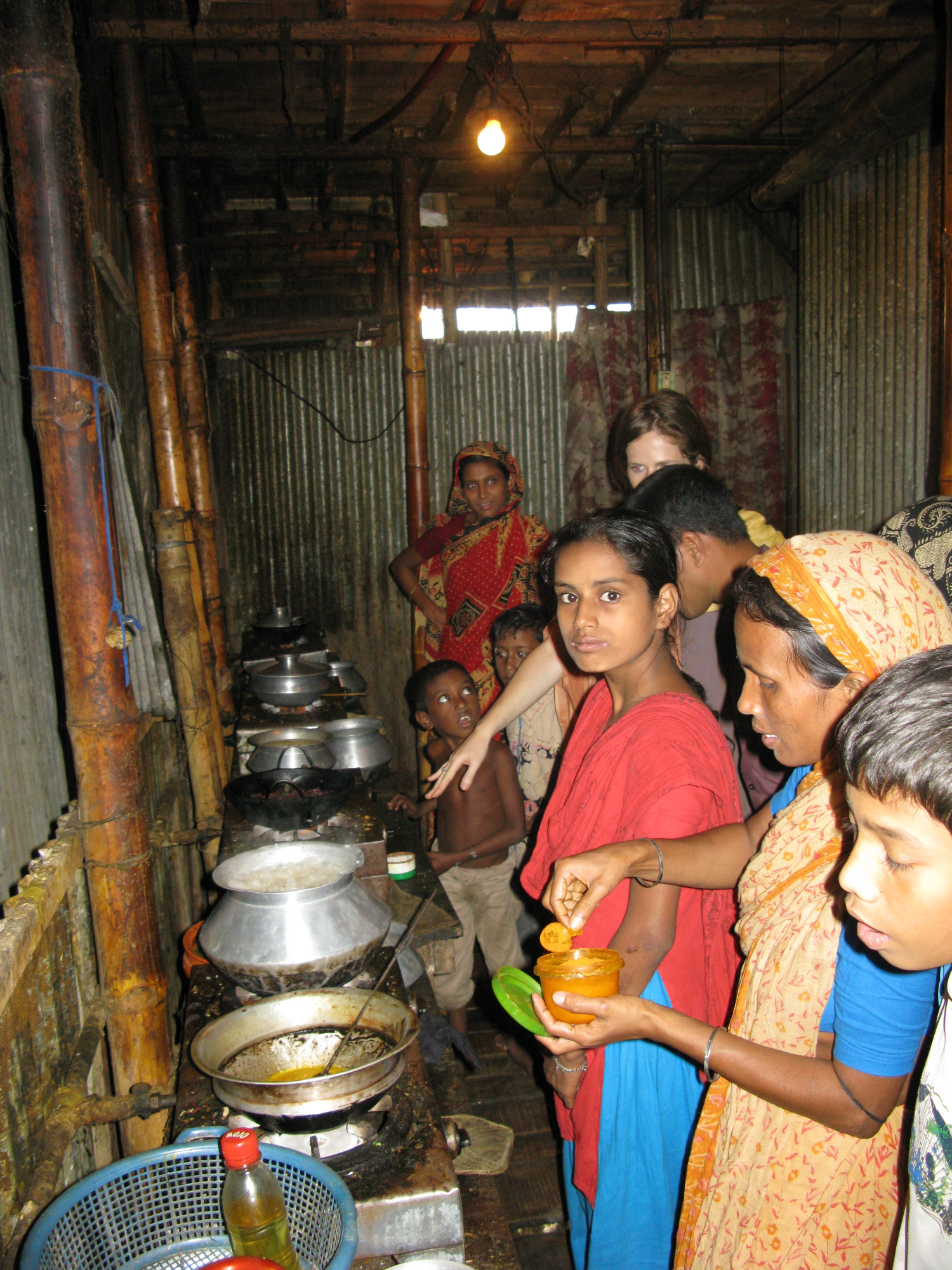What works best to efficiently improve the health of slum children ? Dr Sophie Goudet

In 2018, malnutrition still affected almost 1 out of every 4 of children (22%), and was responsible for half of all deaths among children under 5 worldwide. When not fatal, malnutrition can cause a range of health issues for affected children, like stunted growth and reduced cognitive abilities : malnourished children are not only smaller, they also do less well in schools. Consequently, undernourishment-caused stunting is also a key driver of intergenerational poverty, since stunted children then suffer from more health issues in adulthood, and stunted women give birth to smaller babies.
Photos taken by Dr. Goudet on the field
Understanding what works and doesnt work to effectively reduce malnutrition in very young children is thus key to improve not only the health, but also the economic outcomes of millions of children worldwide.
Today, Dr.Goudet publishes a Cochrane Review that investigates the efficiency of nutritional interventions for preventing stunting in children under 5 living in urban slums. Cochrane Reviews are systematic reviews of primary research in human health care and health policy.
By identifying and synthesizing the results of all available studies that directly relate to the chosen research question, systematic reviews provide a complete, exhaustive summary of current evidence relevant to a research topic. They offer a global overview of the current state of research and provide key evidence-based insights for health practitionners, governments and NGOs.
Dr Goudet and her team examined in this systematic review 13 studies that focused on evaluating the impacts of different nutrition interventions oh the health of children under 5 living in urban slums in low and middle income countries. The effects of interventions such as nutrient supplementation for pregnant women, for infants and children or nutrition education for mothers were evaluated to assess what improves children’s weight and height the most effectively.
Current nutritional interventions are not as effective as they should be
Dr. Goudet’s team chose to focus on urban environments, since urban slum populations of low- and middle-income countries are expected to reach two billion people by 2030.
Unfortunately, she found that there are currently an extremely limited amount of rigorous studies which have evaluated the effect of nutritional interventions on the studied population. Furthermore, the existing studies showed that these interventions in slums did not decrease stunting among children as they should have. Dr Goudet believes that it is because the specificities and complexities of slums have not been sufficiently taken into account, and that what has been proven to work in rural environment is not similarly effective in urban dwellings.
She now calls for better nutrition education for pregnant women, a holistic approach to the urban environment and its people, creative approaches combining multi-sectorial components, innovative population targeting and long term follow up to design more effective policies that will help millions of children worldwide grow healthily. And through their development, to allow the best economic development of their environment, too.
Read Dr. Goudet’s Cochrane review here
June 2019
Dr Sophie Goudet
Know more about her project : Providing evidence to reduce risk of malnutrition in infant and young children in uncertain urban slum environments
PROJECT PAGE
Discover research projects related to the topic
Finance, Investment & Risk Management
Societal Challenges
Microfinance & Financial Inclusion
Emerging Market
Inequality & Poverty
Joint Research Initiative
China
2021.04.19
Understanding the Financial Lives of Low Income Households in China
Leveraging financial diaries research methodology, this joint initiative aims to provide actionable insights about the financial lives of low-income households... Read more

Xiugen
MO

